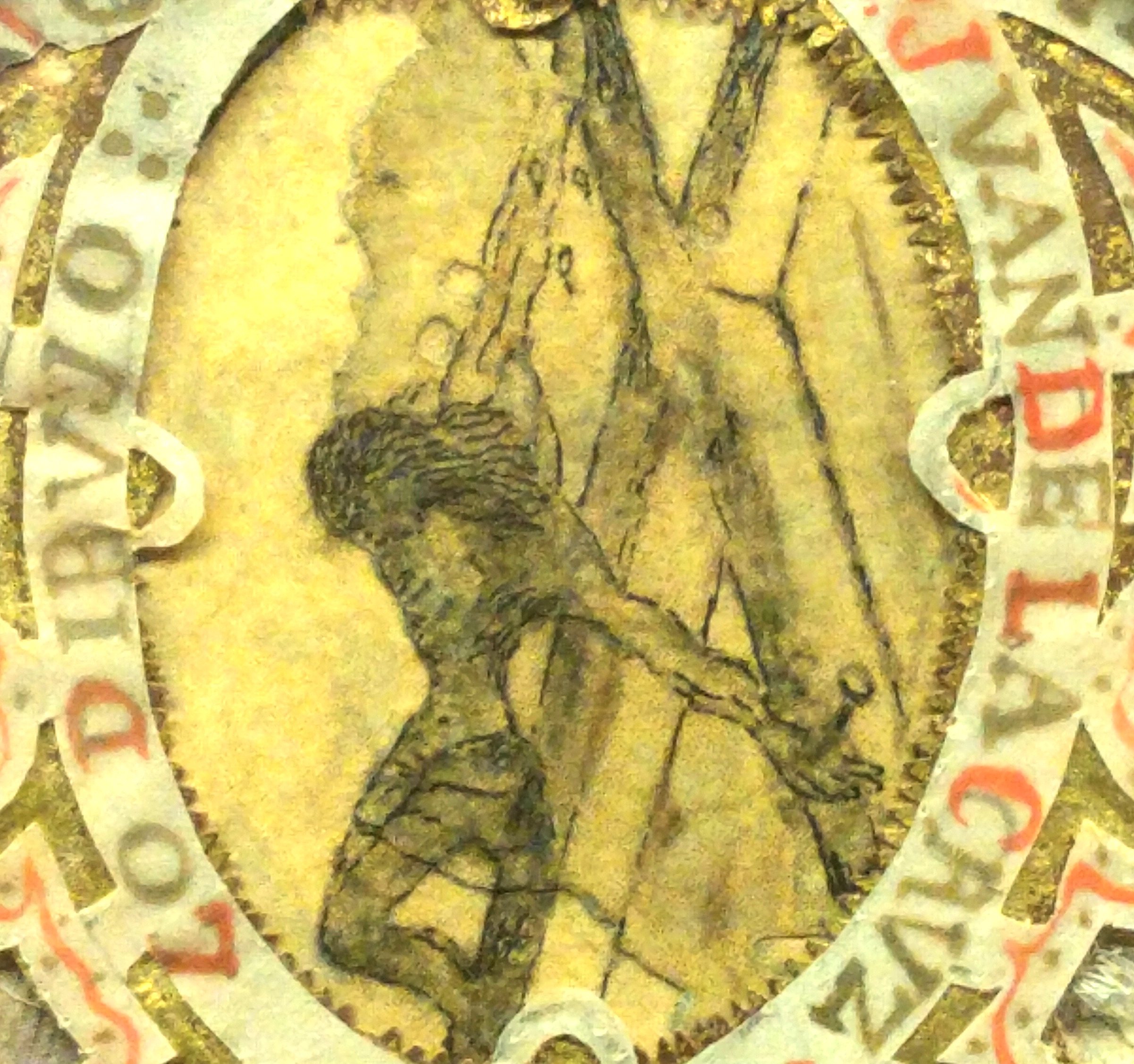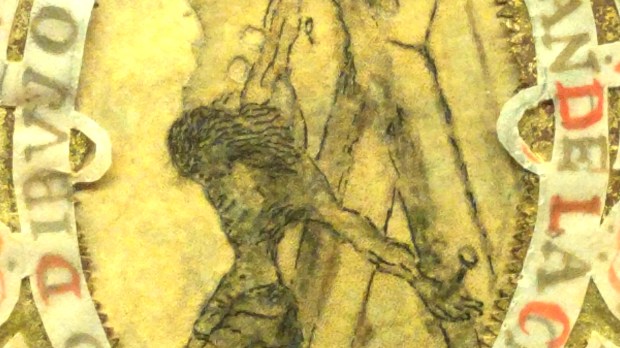In the writings of St. John of the Cross, one of the greatest mystics in history, thousands of people have found a path for drawing closer to God. However, few are familiar with the image of Christ crucified that the saint drew after receiving a mystical revelation.
It’s a small sketch (its original size is roughly 2.25 in. by 1.9 in.), which St. John of the Cross painted during his time in Avila, where, at the request of St. Teresa of Jesus, he was named the confessor of the Carmelite nuns of the monastery of the Incarnation from 1572 to 1577.
Contemporary chronicles recount that St. John had a vision of Christ crucified, which he then represented in a drawing on a small piece of paper. The saint later gave the drawing to one of the nuns at the convent. The sketch, which is preserved at that same convent today in a simple reliquary of gilded wood, can be admired by visitors to the convent’s museum.
It’s a work of genius that represents the image of Christ dead on the cross, at the moment when he had just surrendered his spirit. Despite the sketch’s small dimensions, one feels overwhelmed with emotion seeing the figure’s dislocated members, and the hands torn at the nail holes by the weight of the inert body that hangs forward from the cross.

Seeing Christ’s head fallen upon his chest, leaving his face barely visible, leaves a deep impression. His legs are bent and collapsing under the weight of the body they can no longer sustain.
This powerful image is drawn from a vantage point above and to the right of the cross—a perspective that invites us to see Jesus on the Cross as seen through the eyes of God the Father, moved by the Son’s supreme act of self-giving in reparation for the sins of all men and women.
This work of art helps us to understand the saint’s great book The Ascent of Mount Carmel, in which he describes the path of mystical union with God. In it, he puts words into God’s mouth, directed to those who are always seeking private revelations. The Father explains, “If I have already told you all things in my Word, my Son, and if I have no other word, what answer or revelation can I now make that would surpass this?”
“Fasten your eyes on him alone because in him I have spoken and revealed all, and in him you will discover even more than you ask for and desire … If you desire me to answer with a word of comfort, behold my Son subject to me and to others out of love for me, and afflicted, and you will see how much he answers you.” (Ascent, chapter 22, 5-6)
The mystical and artistic greatness of St. John of the Cross’s drawing captivated Salvador Dalí, who, in 1951, painted his world-renowned work “Christ of Saint John of the Cross.”
This piece originally appeared in Aleteia’s Spanish edition.

